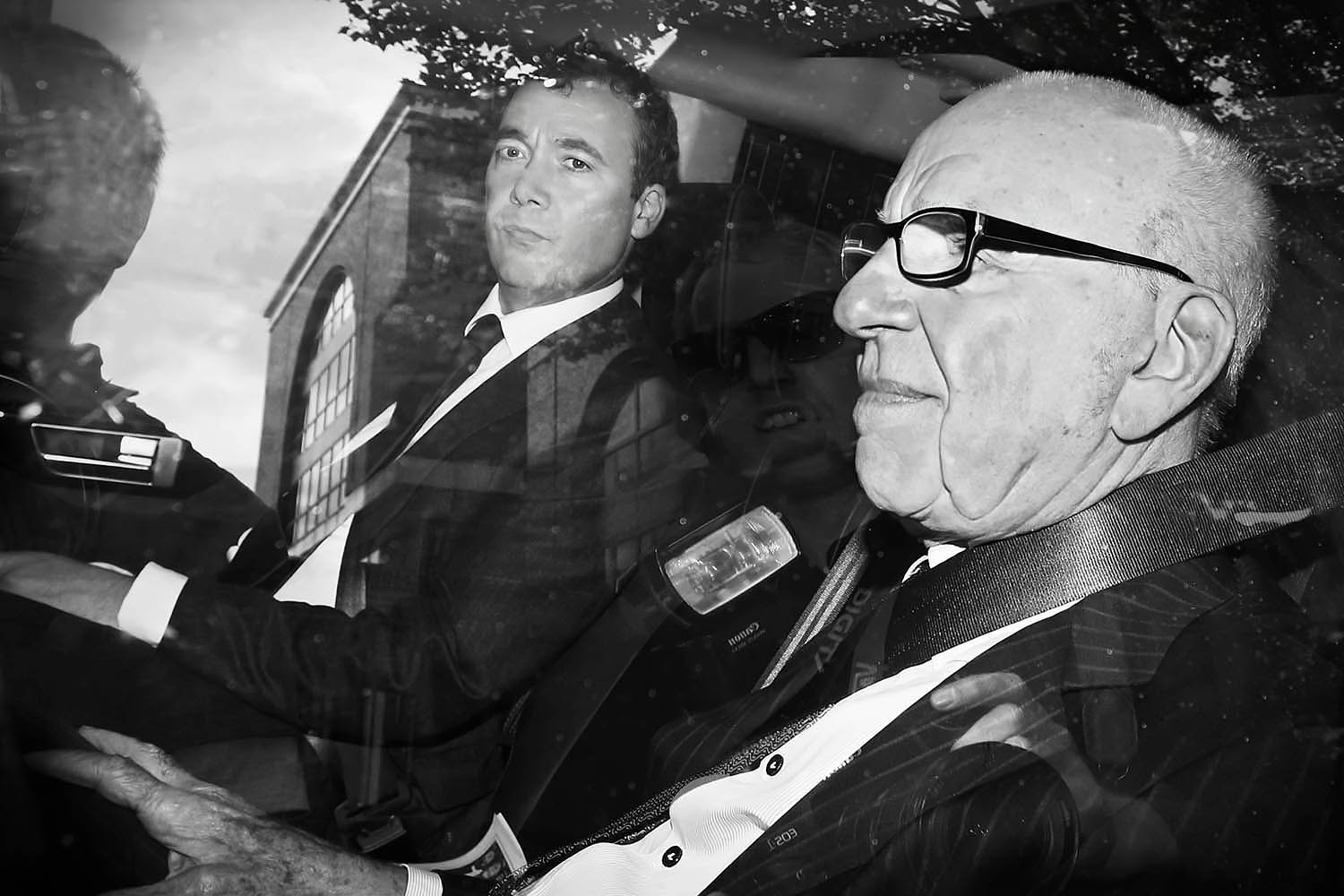
The future of a great American paper and the credibility of its owner could be decided in a London courtroom.
A sizeable gang of American journalists descended on a London court room a couple of weeks ago. They included reporters from the New York Times and National Public Radio and they were there to witness the latest turn of the wheel in a story which has run for nearly 20 years: the phone-hacking scandal.
So what? They came because of a dawning realisation that the fate of one of the world’s great newspapers, the Washington Post – and man in charge of it – will be dictated in part by what happens there.
The case at the Royal Courts of Justice connects
- courts and newspapers;
- London and Washington; and
- Rupert Murdoch and the Post’s owner, Jeff Bezos.
It hinges partly on the unhappy legacy of Murdoch’s newspaper empire, but much of the connective tissue linking all these strands belongs to a third figure: the CEO and publisher of the Washington Post, Will Lewis. His future and that of two of the world’s great media empires are now inextricably linked.
Here’s why:
Listen up. The phone hacking scandal has been re-energised this year by allegations that, more than 10 years ago, News Group Newspapers (NGN) hacked phones not only to get stories for its papers but to advance its business and political interests. Those accusations have been made in civil claims brought against NGN by former Liberal Democrat and Labour politicians including Chris Huhne, Vince Cable, Norman Lamb and Tom (now Lord) Watson. NGN categorically denies them.
- The evidence offered to support allegations of phone hacking for corporate intent – corporate espionage, in effect – centres around patterns of calls made to politicians’ phones at moments when NGN’s business interests were on the line. The claimants contend that the nature of the calls – short calls made in concentrated bursts at key moments – suggests phone-hacking. NGN says it suggests no such thing.
- Cable, the former business secretary, alleges in his claim that News International (as NGN was then known) hacked his voicemails in 2010 to learn about advice he was receiving and his intentions with regard to NI’s proposed full takeover of the satellite broadcaster BSkyB – a takeover Mr Cable had to decide whether or not to refer to the competition authorities. NGN denies this.
Open and shut. English civil law incentivises claimants to settle before cases go to trial so none of these claims has yet been tested in open court. And when settlements are offered in civil cases much of the evidence is often sealed. But if a criminal case was successfully pursued to trial the visibility of the evidence could change dramatically. Which brings us to the claims made on Watson’s behalf last month that attracted the attention of the US press.
- In a witness statement from his solicitor, Watson claimed that in 2011 NGN invented a ‘fake security threat’ to justify deleting millions of emails which could have provided the police and civil claimants with evidence of phone hacking and its cover-up; and that Lewis was instrumental in the invention. If this were true it could amount to obstruction of justice, a charge both NGN and Lewis deny.
- The ‘fake security threat’ alleged there had been a plot, controlled by the former prime minister Gordon Brown and involving Watson, to steal emails belonging to NI’s CEO, Rebekah Brooks.
- This threat was reported to the police by Will Lewis and NI’s then Chief Information Officer, Paul Cheesbrough. It seems no evidence has ever been offered to support it.
Police procedural. “None of this was anything other than a complete fabrication,” Gordon Brown wrote in an article for the Guardian ten days ago in which he also said he had reported the matter to the police. They have been non-committal about what action, if any, they may take.
NGN denied on the record yesterday that the security threat was fake and insisted it had been credible and serious. Specifically, a spokesperson denied it had been invented as a pretext to delete emails to pervert the course of justice. That allegation had been considered by the Crown Prosecution Service in 2015, NGN told us, and the CPS had found no evidence for it.
Nonetheless, by spending perhaps £1.2 billion to settle every claim that’s come its way so far, NGN has managed to limit the amount of evidence which has been made public. A criminal case could prevent NGN paying its way out of trouble.
At the same time it could play the Washington Post into serious difficulties. An active criminal inquiry would be a serious test of Jeff Bezos’s loyalty, and his credibility as a proprietor who can be trusted to get the big calls right; calls such as the appointment of Will Lewis as the paper’s CEO and publisher.
Tortoise Media approached Lewis but he declined to comment.











